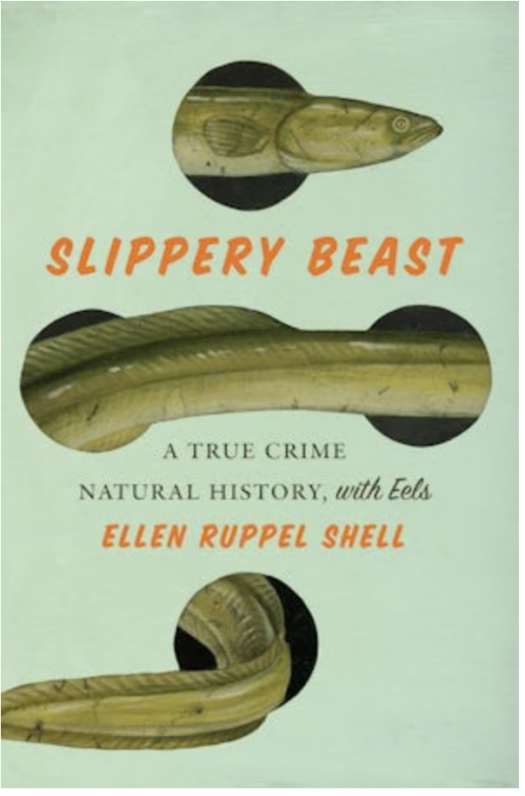Player FMアプリでオフラインにしPlayer FMう!
Slippery Beast: Ellen Ruppel Shell on Eels, Ecology, and the Global Wildlife Trade
Manage episode 454230684 series 1191071
In this episode, we dive into the world of eels with Ellen Ruppel Shell, author of Slippery Beast: A True Crime Natural History with Eels. From ancient mysteries and ecological importance to international crime syndicates and sustainable farming, Ruppel Shell unravels the fascinating and complex story of one of nature’s most enigmatic creatures.
The conversation traces the mysterious lifecycle of eels, their pivotal role in ecosystems, and their entanglement in a global black market. Ruppel Shell also highlights efforts to sustainably farm eels and the cultural significance of these creatures to Native American communities.
From Aristotle to the international criminal trade in wildlife, this episode offers a riveting exploration of eels and their connection to humanity.
Writers Voice— in depth conversation with writers of all genres, on the air since 2004.
Connect with Us: Follow us on social media to stay up-to-date on the latest episodes and news. Find us on Facebook at Writers Voice with Francesca Rheannon, on Instagram and Threads @WritersVoicePodcast or find us on Bluesky @writersvoice.bsky.social. Read transcripts at the Writer’s Voice Substack.
Key Words: Ellen Ruppel Shell, Slippery Beast, eel lifecycle, global wildlife trade, freshwater eels, ecological importance of eels, eel farming, eel conservation, wildlife crime, ecosystems services

Key Topics
- The mysterious lifecycle of freshwater eels and their migration to the Sargasso Sea
- Eels’ ecological importance as predators, prey, and ecosystem engineers
- The global eel trade: poaching, organized crime, and unsustainable practices
- The decline of eel populations and its environmental consequences
- Efforts in sustainable eel farming and Native American conservation initiatives
- The paradox of human desire driving both exploitation and conservation
Key Quotes
- “Eels are like the bottom block of a Jenga tower—remove them, and ecosystems collapse.”
- “The illegal eel trade is the largest wildlife crime by dollar value, rivaling international drug cartels.”
- “Nature assumed eels. They’ve been here for millions of years, shaping ecosystems in ways we’re only beginning to understand.”
If you enjoyed this episode, please share it on your favorite podcast app and leave a review.
23 つのエピソード
Manage episode 454230684 series 1191071
In this episode, we dive into the world of eels with Ellen Ruppel Shell, author of Slippery Beast: A True Crime Natural History with Eels. From ancient mysteries and ecological importance to international crime syndicates and sustainable farming, Ruppel Shell unravels the fascinating and complex story of one of nature’s most enigmatic creatures.
The conversation traces the mysterious lifecycle of eels, their pivotal role in ecosystems, and their entanglement in a global black market. Ruppel Shell also highlights efforts to sustainably farm eels and the cultural significance of these creatures to Native American communities.
From Aristotle to the international criminal trade in wildlife, this episode offers a riveting exploration of eels and their connection to humanity.
Writers Voice— in depth conversation with writers of all genres, on the air since 2004.
Connect with Us: Follow us on social media to stay up-to-date on the latest episodes and news. Find us on Facebook at Writers Voice with Francesca Rheannon, on Instagram and Threads @WritersVoicePodcast or find us on Bluesky @writersvoice.bsky.social. Read transcripts at the Writer’s Voice Substack.
Key Words: Ellen Ruppel Shell, Slippery Beast, eel lifecycle, global wildlife trade, freshwater eels, ecological importance of eels, eel farming, eel conservation, wildlife crime, ecosystems services

Key Topics
- The mysterious lifecycle of freshwater eels and their migration to the Sargasso Sea
- Eels’ ecological importance as predators, prey, and ecosystem engineers
- The global eel trade: poaching, organized crime, and unsustainable practices
- The decline of eel populations and its environmental consequences
- Efforts in sustainable eel farming and Native American conservation initiatives
- The paradox of human desire driving both exploitation and conservation
Key Quotes
- “Eels are like the bottom block of a Jenga tower—remove them, and ecosystems collapse.”
- “The illegal eel trade is the largest wildlife crime by dollar value, rivaling international drug cartels.”
- “Nature assumed eels. They’ve been here for millions of years, shaping ecosystems in ways we’re only beginning to understand.”
If you enjoyed this episode, please share it on your favorite podcast app and leave a review.
23 つのエピソード
すべてのエピソード
×プレーヤーFMへようこそ!
Player FMは今からすぐに楽しめるために高品質のポッドキャストをウェブでスキャンしています。 これは最高のポッドキャストアプリで、Android、iPhone、そしてWebで動作します。 全ての端末で購読を同期するためにサインアップしてください。




